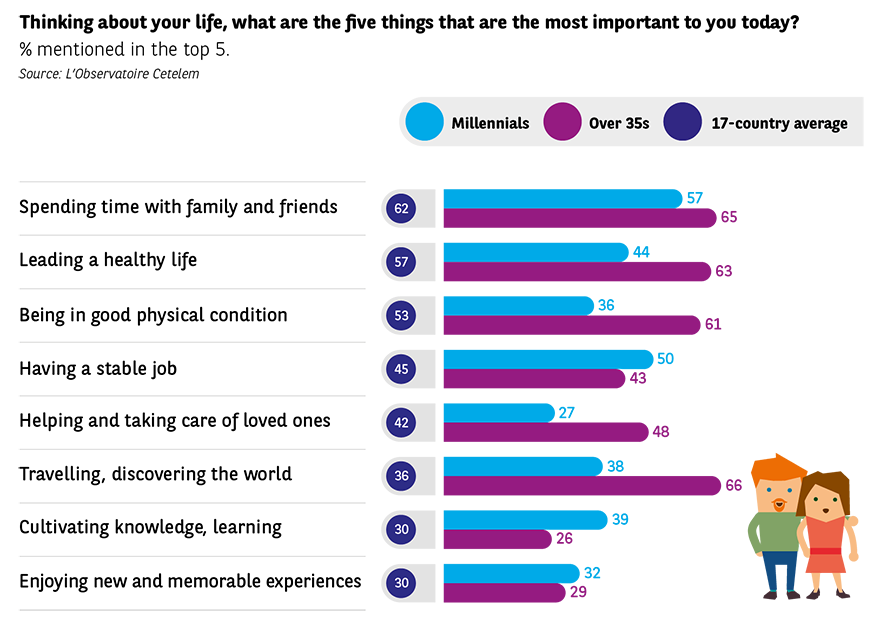Unwitting Epicureans


For the love of family
Spending time with family and friends is what Millennials believe is most important. Indeed, 57% are of this opinion (vs. 65% of over 35s). The Czechs, Slovaks and Romanians are the most likely to feel this way (66%, 66% and 62%), while only 46% of Italian Millennials declare that it is important to them. This is a result that puts certain preconceptions to bed.
Professional stability
Now at the beginning of their careers, Europe’s Millennials place professional stability in second place when it comes to the values they hold dear. 50% deem it important. The results highlight a relative correlation between this “value” and the rate of unemployment. The higher the latter, the keener Millennials are to be in long-term employment. This is notably the case in Spain and Portugal (61% and 64%), unlike in Sweden and the UK (36% and 43%). In France, the figure is slightly below the European average (46%).
The importance of living a healthy life
Speaking of philosophy, Millennials seem to have adopted the motto of Juvenal: Mens sana in corpore sano. The value they rank third is the quest for a healthy life (44% of respondents), while being in good physical condition is a goal for 36% of those surveyed. The Romanians, Portuguese and Danes are very keen on the former (63%, 52% and 50%), but it is less important for the Poles, Slovaks and Bulgarians (29%, 33% and 37%). For the Italians, Germans and Austrians, physical condition is what is most important, while the Bulgarians, Portuguese and Poles see it as less crucial.
Open-mindedness
Compared with other generations, there is a clear split when it comes to hunger for new discoveries and culture. 39% of European Millennials display such proclivities, compared with just 26% of over 35s. Here, the enthusiasm of youth appears to counter the resignation that comes with age. In this area, the Austrians, Bulgarians and Hungarians are manifestly the most curious (52%, 47% and 47%). France and Italy, two traditional “lands of culture”, post relatively low scores (32% and 27%).
This desire for openness is illustrated by their urge to travel (38%) and their need for powerful experiences (32%). The Italians, Swedes and Spanish are the most intent on crossing borders, with the Hungarians, Slovaks and Brits having more of a tendency to stay at home.

